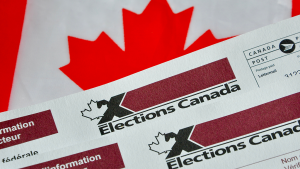TORONTO—Two respected municipal economics consultants have released a paper outlining the conditions under which municipal governments should be allowed to raise revenues other than from property taxes to pay for needed services and infrastructure.
The IMFG paper titled New Tax Sources for Canada’s Largest Cities: What Are the Options?, from municipal finance experts Enid Slack and Harry Kitchen, reviews the advantages and disadvantages of a range of potential new taxes including income, sales, fuel, parking, road tolls and hotel taxes. The paper was released Nov. 23 and is based on a longer report released earlier this year.
Slack and Kitchen analyzed taxes and other revenue tools as appropriate for eight Canadian cities — Vancouver, Calgary, Ottawa, Edmonton, Winnipeg, Toronto, Montreal and Halifax.
The paper recommends that decisions on public spending be clearly linked with revenue decisions. Those who make expenditure decisions should also make revenue decisions and the revenue tool should match the type of expenditure being funded, the economists argue, to ensure the public is able to assess the cost of programs with the funding.
The traditional tool used by municipalities is the property tax and Slack and Kitchen argue that tax is still appropriate.
"Recent evidence suggests that, in many cities, there is room to increase the residential property tax without dire economic consequences, except for those who may be asset-rich but income-poor," they write. "Even so, the property tax may not be sufficient to meet the growing needs of large cities."
User fees, say the authors, force citizens to make decisions about how much of a service to consume and governments to make decisions about how much of the service to provide.
"Under-pricing services leads to over-consumption and demands to build more under-priced infrastructure," say Slack and Kitchen.
A mix of taxes would give large cities flexibility and allows them to achieve revenue growth and revenue stability, says the paper, but for small and medium-sized municipalities, new taxes may not be appropriate because they may not generate sufficient revenues to justify the tax. For those cities, say the authors, government transfers are in order.
A final conclusion was that cities should set their own tax rates, not piggy-back on provincial taxes, in order to be accountable to taxpayers and best link services to costs.




Recent Comments
comments for this post are closed